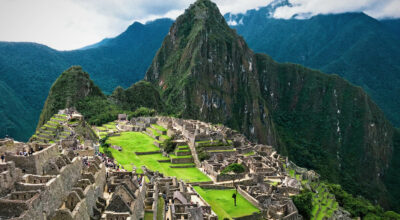Yagya and Hawan : Religious Importance of Yagya and Hawan

Yagya and Hawan
Brahma made the yagya together with man, Agni is considered to be the mouth of God, therefore sacrifice is given in Agni.
Yagya and Hawan, The tradition of Yagya in Hinduism has been going on since Vedic times. In Hinduism, there are many instances where sacrifices are made to fulfill desires and to ward off evil. The Ramayana and the Mahabharata describe many sacrificial kings who performed great sacrifices throughout their lives. There is a tradition of sacrificing to please the deity. According to the scriptures, Yajna was first composed by Father Brahma. The entire description of Yajna is found in the Vedas.

Sacrifice is the path to progress
– Another name of Yajna is Agni Puja. Yajna pleases the deity and yields the fruit desired by the mind.
– Brahma did the yajna together with man and told the man, this yajna is your advancement.
– Yajna fulfills your every wish and need. Strengthen the gods with sacrifices, and they will prosper.
Fire is considered to be the mouth of God
In the scriptures, fire is considered to be the mouth of God. Whatever is fed or sacrificed in it is a feast. Sacrifice in the fire of the mouth of the sacrifice is to feed the divine. There is no doubt that the gods will come in the sacrifice. The glory of Yajna is widely sung in the scriptures. The main subject of the Vedas is Yajna. God is pleased with Yajna. Gayatri is considered the mother and Yajna the father

Sacrifices are made for the atonement of deeds, for the peace of calamities and calamities, for the fulfillment of any deprivation, for the attainment of any opportunity or good fortune, for the removal of diseases, for the pleasure of the gods, for the increase of wealth and crops. Havan is considered obligatory for any sadhana. Havan is considered obligatory for all the chanting, recitation, worship etc. Havan is also required in Gayatri rituals. Gayatri is called the mother and Yajna is called the father.
Read Also
The science associated with sacrifice
Sacrifice is an important science. The samidhas of the trees used in it have special qualities.There is also the science of what kind of material is burned for the cake. A special property is formed from the mixture of the things burned, which creates a specific effect on the atmosphere after burning.

The power of utterance of Vedic mantras greatly enhances its effect. This has a big impact on the people participating in the yajna and the atmosphere around the yajna site. Yajna is better for the environment than artificial rain in a scientific way. Large yajnas are needed for widespread prosperity, rain, health and peace. Sasana Havan also provides benefits within its limits and dignity.
Differences in Yagya and Hawan
Havan is a short form of Yajna. Yajna is a sacrifice offered to a particular deity for a specific purpose. In Yagya, deity, sacrifice, Vedic mantra, Ritwik and Dakshina are considered essential. Havan is also a ritual of purification in Hinduism. The process of bringing food to the deity through fire in the tank is called havan.

Havi, havya or havishya is the substance which is sacrificed in fire. After lighting the fire in the incinerator, the sacred firecrackers, fruits, honey, ghee, samidha etc. are sacrificed. According to the belief, if someone is under the influence of an evil spirit, even if a supernatural element causes him suffering, he is burnt to remove such a problem.







